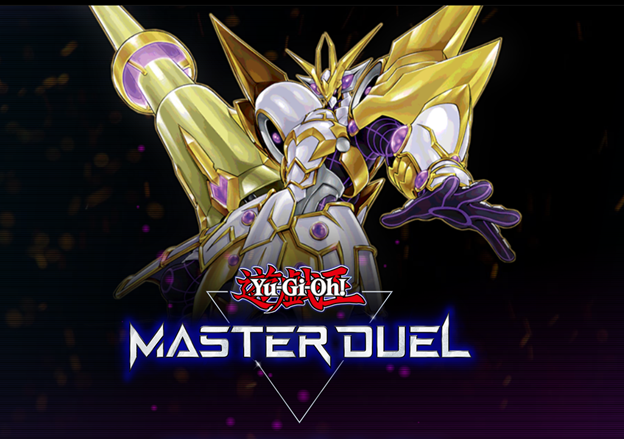Over 65% of people don’t think about their future. With the constant bombardment of bad news online and destructive social media content, people have lost the ability to concentrate on their plans. Sideboarding skill can teach millions to regain their ability to focus on what matters.
Card games can give you surprising benefits that go beyond just fun. They can teach you useful life lessons. For example, you have to track cards, determine who has what, remember the bidding, and predict future moves. It's a dynamic mental exercise that builds your working memory and problem-solving abilities.
Training your short-term memory is about consistent mental engagement. Simple games, like Pokémon, Hearthstone, and Yu-Gi-Oh!, engage your brain. Visualizing card layouts requires critical thinking and spatial awareness.
Playing card games engages both sides of the brain — the logical and creative sides. You are constantly thinking ahead, anticipating what others might do. It requires quick, flexible thinking.
For advanced strategizing and risk reduction, players often resort to sideboarding. It refers to players’ ability to move cards from the main deck to a separate (“side”) board. You sideboard for:
● Planning.
● Exploiting the opponent’s weaknesses.
● Adjusting strategy.
Ad
Sideboarding skills are rudimentary in many card games. Whether you play Solitaire or use sideboarding in a trading card game, it can improve five important cognitive abilities.
1. Adaptive Thinking
One of the key transferable skills that sideboarding builds is adaptive thinking. With card games, you:
● Constantly adjust your plan based on new information.
● React to unexpected situations.
● Focus on finding a solution.
Being able to spin different in-game scenarios in your head can help you generate ideas for real-life problems.
In competitive games, you will need to adapt quickly to your reaction and play. For example, you can act fast as your opponent hesitates to make their move. You can also bluff if your opponent behaves too confidently. It will help you assert dominance.
Ad
2. Resource Management
Your cards are limited resources. Using them efficiently is like managing your time, energy, or money.
Beyond core cognitive skills, card games are great for building self-control. They teach you to focus and resist quick, impulsive moves. You want to pause and consider the options. Practicing this kind of disciplined thinking makes you more aware of your thoughts, feelings, and motivations.
3. Decision-Making Analysis

Every sideboard choice and play involves weighing options, trade-offs, and potential consequences. You can get good at evaluating choices under pressure.
Card games teach you to scan the board and locate important cards in minutes. With trading card games, it means identifying which cards are ineffective against a specific opponent type, such as aggro. You can lock in the right chain of actions by removing those cards and replacing them with better ones for the next match.
4. Well-Planned Timing
Ad
Classic trading card games, like Pokémon and Yu-Gi-Oh!, force you to think ahead. To win, you should plan your turns, evolution, and combos. Sometimes you should guess what your opponent is going to do. It simulates the planning you need to make big life decisions.
Knowing when to play a key sideboard card and when to hold back is crucial in trading card games. It teaches you the sense of timing, which helps you stay focused and patient.
Patience is often an overlooked skill. In games like Pokémon, restraint is often your best friend. Impulse plays are usually punished. With only one energy per turn, you will learn that waiting for the right play or moment can make all the difference. It teaches delayed gratification, which is also linked to better career outcomes.
5. Calculating Risk
In trading card games, you always weigh potential gains against potential losses. Thinking about whether a risky play is worth it is the calculation you have to make all the time in card games. You learn that our actions have consequences.
One of the key notions in Hearthstone is deck up-to-down sequencing. For example, if you start your turn with small rank cards, you get to play them sooner. At the beginning of the game, you can use your sideboarding skills to change or keep starting hand cards. You should change any high-ranking cards so that they can come to you later in the game when you can play them. It ensures you don’t lose tempo, which means always having a place for maneuvering.
Social Aspect of Card Games
Over 75% of gamers say that they have built new social connections through gaming. Playing cards with people has a variety of social and emotional benefits. It's a natural, enjoyable way to connect with friends, family, and people in your community.
Ad
Trading card games support conversation, laughter, and a sense of shared experience. As people get older, maintaining social ties becomes more important for mental and emotional health. Card games help fight loneliness.
Beyond just feeling good, trading card games can help you deal with hard situations like setbacks or losing. They teach you how to cope with loss. You learn quickly in most card games that you won't win every hand, turn, or game. It builds emotional resilience by showing you that short-term setbacks are not the end of the world. They are stepping stones towards building mastery.
The process of reading people and predicting their moves helps you elevate your emotional intelligence. It can make you better at negotiations and resolving conflicts. Trading card games like Hearthstone, Yu-Gi-Oh!, and Pokémon offer you a low-stakes practice ground for understanding people.
Jump Into a 5-Minute Drill and Improve Fast
Card games are more than a simple pastime. They are powerful tools for mental sharpness, emotional growth, boosting memory, risk assessment, and complex strategy. With trading card games and sideboarding, you can prepare for any challenge and gain cognitive benefits for better focus, speed, and results.




— Комментарии
0Прокомментируйте первым